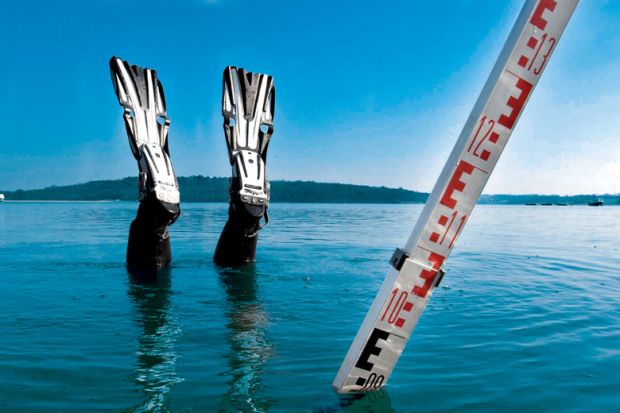点击阅读英文原文
最近,乌得勒支大学(Utrecht University)宣布,将禁止在评估科学家的过程中使用期刊影响因子。这种可衡量的绩效指标将被抛弃,取而代之的是一种“开放科学”体系。这种体系以牺牲单个科学家的利益为代价,将集体(团队)集中起来。
然而,我们担心乌得勒支新的“认可和奖励”制度将导致随机性,并导致科学质量的降低,而这将对荷兰科学家的认可和评价机制产生严重的后果。特别是,它将对年轻科学家产生负面影响,让他们失去国际竞争力。
乌得勒支认为期刊影响因子在研究人员的评价中起的作用过大,这一说法是有误导性的。对于相当多的研究领域来说,影响因子并不是那么重要。为了考虑特定领域的文化,研究人员开发了领域加权的引用影响分数,将科学家实际得到的总引用数与学科领域的平均引用数进行比较。例如,医学成像研究小组通常在影响因素较低的技术期刊上发表自己的研究成果。虽然他们的技术不是突破性的,但是发展更快的核磁共振方法是很重要的。荷兰研究委员会(Dutch Research Council, NWO)在其奖励政策中考虑到了这一点。因此,NWO的职业发展计划向从未在高影响因子期刊上发表论文的医学成像研究人员提供了许多个人资助。
第二个误解是,期刊的影响因子与其出版质量无关。在《自然》(Nature)、《科学》(Science)或《细胞》(Cell)等顶级期刊上发表的一篇普通论文,比一本技术期刊上的普通论文需要更多的工作。顶级期刊得到世界级专家的帮助,从而保证了其高影响力和高质量。这并不意味着《自然》杂志上的每一篇论文一定都比在技术期刊上发表的文章要好,但总的来说,推翻教条的新技术和概念都是在顶级期刊上发表的。
NWO的“我来,我见,我征服”(Veni, Vidi, Vici)人才项目的申请格式在过去几年发生了根本性的变化。带有出版物、引用、讲座等客观信息的简历内容都被“叙事”所取代。不管审核者对申请的看法如何,他们将不再对其进行评分,而被要求填写包含优点和缺点的列表。在一些NWO的比赛中,由于强调“团队科学”,简历被完全删除。
评估委员会的反馈令人不安。委员们不知道如何比较候选人,在网上搜索能表明他们表现的数字是被禁止的。评审通常是从荷兰以外的国家招募来的,他们抱怨这种形式耗时太多,有时干脆拒绝对“叙事”进行评判。
我们认为,NWO有责任分配公共资金,以支持最优秀、最有才华的科学家发现新的见解并进行创新。我们强烈支持对那些不完全以科学为导向的学者进行“认可和奖励”,但我们认为这是高校的责任,而非NWO的责任。高校的人力资源政策必须为擅长非科学能力的学者提供不同的职业道路。
定量分析问题是科学实践的一个重要特征,特别是在医学、生命科学和精密科学中。在这些学科中,全世界都在寻求具有创造性的解决方案。因此,科学上的成功更容易被衡量和比较。我们可以理解对于偏向定性的科学来说,可以使用其他方法来评估成功与否。我们强烈支持以不同方式来评估不同的科学学科,并建议由学科本身决定如何评估其学科内的科学家。
乌得勒支大学的政策非常强调开放科学、公众参与水平、数据的公众获取性、研究团队的组成和领导力。这些标准不是科学性的,而是政治性的。此外,衡量这些因素是极其困难的,更不用说用它们对不同科学家进行公平地比较了。因此,这些因素不应该成为评估科学家的主要标准。尤其是对于医学、生命科学和精确科学的研究轨道,国际公认的和可衡量的标准必然是最重要的。
世界科学强国美国的发展轨迹和荷兰完全不同。大型公共资助者,如美国国家卫生研究院(National Institutes of Health, NIH)和美国国家科学基金会(National Science Foundation, NSF)只关注科学上的成就,并没有签署将影响因子排除出评价指标的《研究评估宣言》(Declaration on Research Assessment, Dora,也称《旧金山宣言》)。
我们认为,NWO和荷兰大学应该为主要专注于研究的学者保持客观和可衡量的标准。我们更喜欢那些能产出最佳科学成果的科学家。这是造福社会和维护荷兰在国际排名中的有利地位的最佳途径。
雷蒙德·普特(Raymond Poot)是鹿特丹伊拉斯谟大学(Erasmus University)医学中心的副教授。威廉·穆徳(Willem Mulder)是内梅亨大学(Radboud University)医学中心教授兼埃因霍温科技大学(Eindhoven University of Technology)精准医学教授。本文曾在荷兰《科学指南》(Science Guide)杂志上首次发表,并附有172名学者的签名;此为初版文章的翻译编辑版。
本文由陆子惠为泰晤士高等教育翻译。
后记
Print headline: Journal impact factor ban is bad for Dutch science




